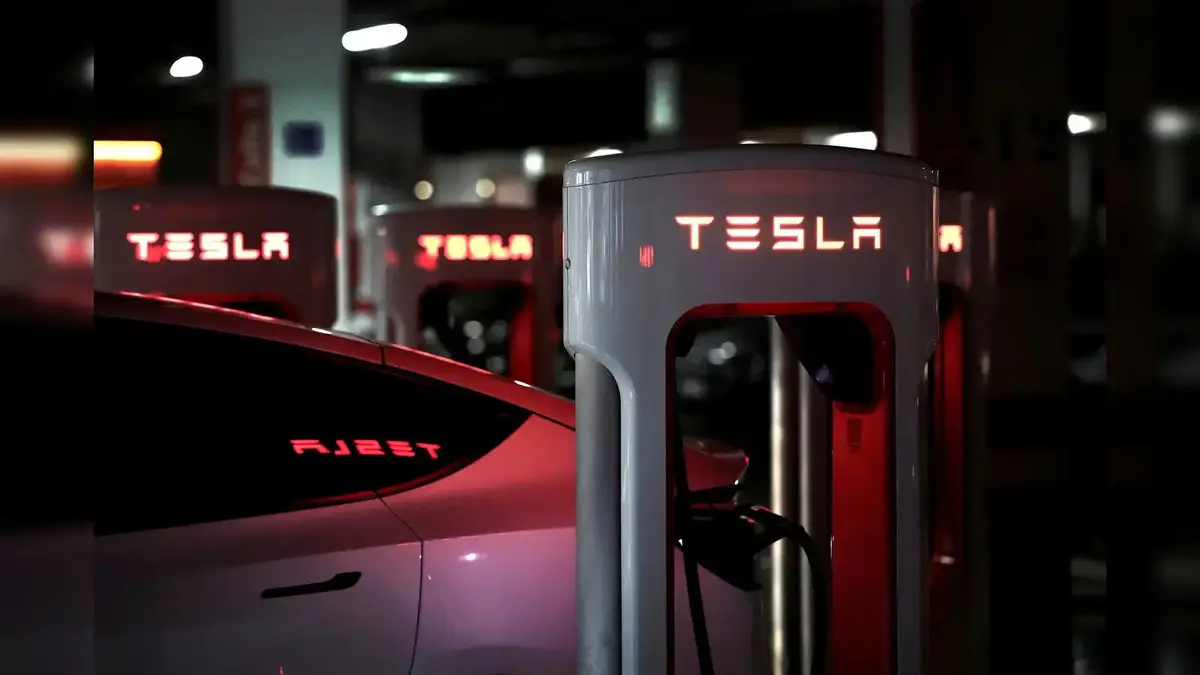After years of anticipation and high-level discussions, Tesla has officially decided not to manufacture or produce electric vehicles in India, according to Union Minister for Heavy Industries HD Kumaraswamy. Instead, the U.S.-based EV giant, led by billionaire entrepreneur Elon Musk, is focusing only on setting up retail showrooms across the country.
“Tesla is not looking at manufacturing in India. They are only planning to establish showrooms,” Kumaraswamy told news agency ANI, effectively closing the chapter on India’s hopes of becoming a Tesla manufacturing hub.
This revelation comes just months after speculation that Tesla might finally enter the Indian manufacturing ecosystem under the newly introduced electric vehicle (EV) policy. The government had rolled out a competitive policy designed to attract global players, but Tesla’s decision signals a divergence from that path.
Why Tesla’s Exit from Manufacturing Matters
Tesla’s decision is significant for several reasons. First, the company has been in talks with Indian authorities for more than four years, exploring potential factory locations and import duty reductions. Elon Musk had previously cited India’s steep import taxes—as high as 100%—as a major roadblock to local operations.
Second, Tesla’s withdrawal may impact India’s aspirations to become a global EV manufacturing hub, particularly as it attempts to compete with Southeast Asian markets like Vietnam, Thailand, and Indonesia, which have aggressively courted companies with favorable tax and land policies.
EV Policy: A Golden Opportunity for Global Players
Even as Tesla steps away from local manufacturing, other international automobile giants are gearing up to plug the gap. Companies like Hyundai, Mercedes-Benz, Skoda, and Kia have expressed strong interest in establishing manufacturing bases in India under the new Scheme to Promote Manufacturing of Electric Passenger Cars in India (SPMEPCI).
The key highlights of this policy include:
- Reduced import duty of 15% for EV companies investing a minimum of $500 million
- Requirement to source at least 25% of vehicle parts locally in the first three years
- Increase local sourcing to 50% by the fifth year
This policy aims to ensure technology transfer, local job creation, and gradual self-reliance in EV components and battery systems.
Kumaraswamy also confirmed that the application window for the scheme will open soon, allowing interested manufacturers to officially express interest and begin project planning.
Geopolitical Headwinds: Is Trump’s Tariff Threat a Factor?
Industry insiders suggest that Tesla’s reluctance might also be influenced by political and economic tensions between the U.S. and other nations. Former U.S. President Donald Trump—a vocal proponent of “America First” policies—has previously criticized Tesla’s potential expansion in India, calling it “very unfair” during his tariff campaign targeting China and other trade partners.
Trump issued similar warnings to Apple CEO Tim Cook, criticizing the company’s shift of manufacturing from China to India, arguing that such moves undermined U.S. manufacturing jobs.
Although Elon Musk hasn’t publicly commented on the minister’s statement, his past remarks indicate concern over policy uncertainty and high duties in India, both of which may have contributed to the company’s decision.
Interesting Read
What This Means for India’s EV Ambitions
Tesla’s refusal to manufacture in India is a setback, but not the end of the road. With India’s EV market projected to grow by over 49% CAGR between 2025 and 2030, opportunities remain vast. The government continues to build a framework to support domestic manufacturing, battery innovation, and public charging infrastructure.
India’s focus is now expected to shift toward encouraging other global and domestic EV brands to capitalize on the new policy and build robust supply chains in the country.
Conclusion:
Tesla may have decided to take the showroom-only route in India, but the country’s vision of becoming an EV powerhouse is still very much alive. With multiple global auto giants ready to invest under India’s revamped EV policy, the race to dominate the electric mobility market is heating up—just without Elon Musk on the manufacturing track.





